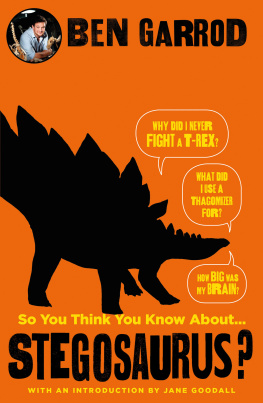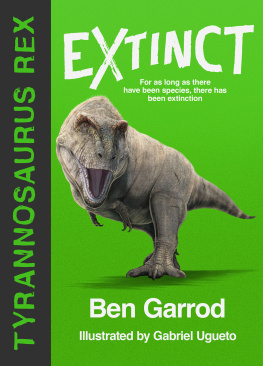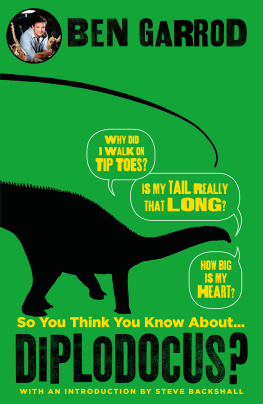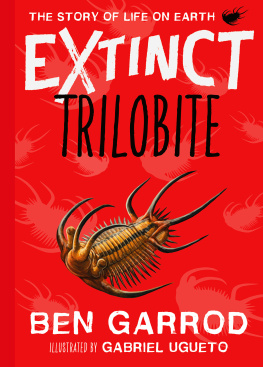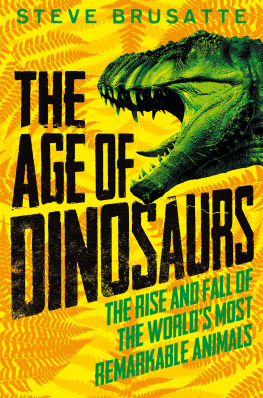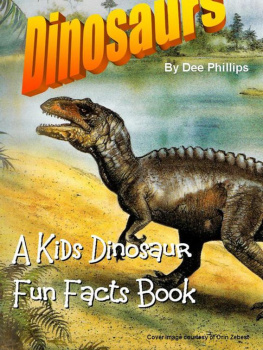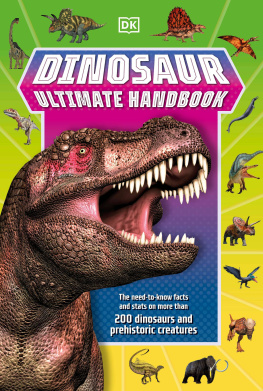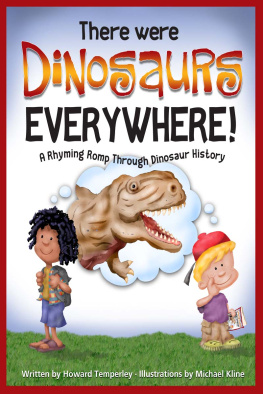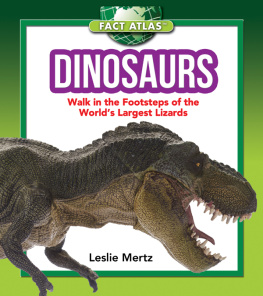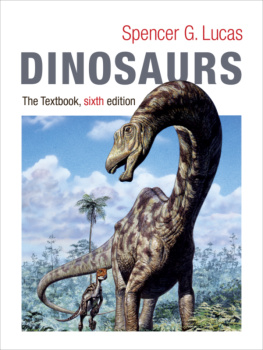SO YOU THINK YOU KNOW ABOUT STEGOSAURUS?
Ben Garrod
www.readzephyr.com
Ben Garrods So You Think You Know About Dinosaurs? is fun, funny and informative. This highly collectable, pocket-size series is the most up-to-date in 66 million years, featuring Tyrannosaurus rex, Diplodocus, and Triceratops, introduced by Steve Backshall, and Velociraptor, Stegosaurus and Spinosaurus, introduced by Dr Jane Goodall.
Did you know that not all dinosaurs are green and scaly, some are ginger and feathered, or that they didnt all roar, they cooed like pigeons, or that the ultimate prehistoric predator is actually not a dinosaur? TV scientist, Dr Ben Garrod, is proud to be a geek as he mixes hard science and humour to prove that science is for everyone. All children know their dinosaurs but Ben encourages them to think differently, revealing how new discoveries and breakthroughs occur in science every day. By looking at the evolutionary arms race, prey, predators, place, time, groups and species, Ben reveals new-look dinosaurs. Palaeo art by Scott Hartman and Gabriel Ugueto and cartoon illustration by Ethan Kocak.
CONTENTS
ASK AN EXPERT : WHY DID STEGOSAURUS
HAVE PLATES AND SPINES?
NEW SCIENCE : SO WHAT SOUNDS DID
DINOSAURS MAKE?


I was born loving animals. I used to watch birds and squirrels and frogs in our garden and on the cliffs above the sea. When I was ten years old, I decided I would go to Africa, live with wild animals and write books about them. Everyone laughed Africa was far away and I was just a girl. Back then (1944), girls didnt get to do things like that. But my mother said, If you really want this you must work hard, take advantage of opportunities, and never give up. That is the message I have for you.
My dream came true when I met Dr Louis Leakey and was able to study chimpanzees in Gombe National Park, Tanzania. Chimpanzees helped me prove to science that like humans, animals have personalities, minds and emotions. Eventually I built a research station and my students are still learning new things about the Gombe chimpanzees. Just as scientists are always learning about new species of dinosaur.
by Jane Goodall , PhD, DBE
Founder - the Jane Goodall Institute
& UN Messenger of Peace

I have known Dr Ben for years and he and I both encourage you to follow your dreams. Maybe you dont plan to be a scientist, but even so you need to learn about the work scientists do, for it helps us understand so much about the wonderful world we live in about evolution and the incredible variety of species. And there are many more species not yet discovered. Maybe you will discover one of them! Maybe it will be named after you!
Whatever you decide to do, I hope youll always be curious about our magical world and inspired by the people who spend their lives uncovering her secrets and sharing them. And, above all, that you will join Dr Ben and me in our efforts to conserve life on planet Earth.


Okay, I have a confession. I was wrong. I dont often admit it, but I used to think that to be a scientist you had to have been to school and university, and then work in a laboratory or a rainforest, like a real scientist. But then something weird happened to me. The more qualified I became (Ive been to three universities now), and the more I worked in steamy rainforests, hot deserts, tropical islands and coral reefs, the more I realised that any of us can be a scientist at any age . If youre interested in and passionate about science, then you are a scientist.
Science is for every single one of us. It surrounds us in every part of our lives. All you need to be a scientist is to find a way to take part . Do you count the number of birds in your garden and feed those results into national surveys? Do you collect fossils and record the details of where and when you found them? Do you have a wormery and watch how they break down leaf litter and household waste into soil? Do you help collect plastic litter from a beach nearby to save seabirds? All of these things are done by scientists you dont need a white lab coat, test tubes and a brain the size of a planet to make you a scientist. Maybe you blog about science, or take photographs, or maybe you just do stuff by yourself and dont tell anyone. Doing anything like this means you are part of the scientist club, a really cool and really geeky club. A club that contains astronauts and engineers, shark biologists and mathematicians, tree experts and, of course, palaeontologists.
My parents were not scientists and there were none in my family, but when I was little I was lucky to meet a scientist called Percy who didnt treat me like I was just a kid. It helped me feel that I could talk about science and be part of this cool worldwide web of amazing people. When I was a lot older, I met another great scientist, Dr Jane Goodall, and I chatted to her. She had famously been working with wild chimpanzees in Africa for nearly 50 years but there she was, talking to me. I was very lucky because I managed to get a job working for Jane and ended up living in a jungle in a mud hut, following chimpanzees every day. When I think about it now, I know Ive got the best job in the world because I love the work I do and because, ever since I was young, I thought of myself as a scientist.

If you think you might be a young scientist, then remember that you are already part of this very big club , where you can have a conversation with anyone around the world about the science you love. I guarantee that wherever you go, youll always find another scientist happy to talk about their work and how you can get more involved in your own area of science. Okay, there could be a couple of grumpy scientists who still think that science is for real scientists, but most of us would love to encourage you.
Being a scientist is great fun but it is not always easy, especially when youre young. It might not seem as cool as being sporty or fashionable but thats okay. No one is saying you cant be sporty and a scientist, no one is saying you have to be into fashion and science. Just be yourself.
There are over seven billion people on planet Earth (thats 7, 000 000 000) and each of us is different. Imagine how boring it would be if we all liked the same things. Be proud of who you are and what you love doing and remember, with so many other young scientists out there, you will always have someone who likes the same sort of things you do. Start to think about what it means to be a young scientist and imagine the interesting conversations you might have, the amazing scientists you might meet and the incredible things that you will do.

